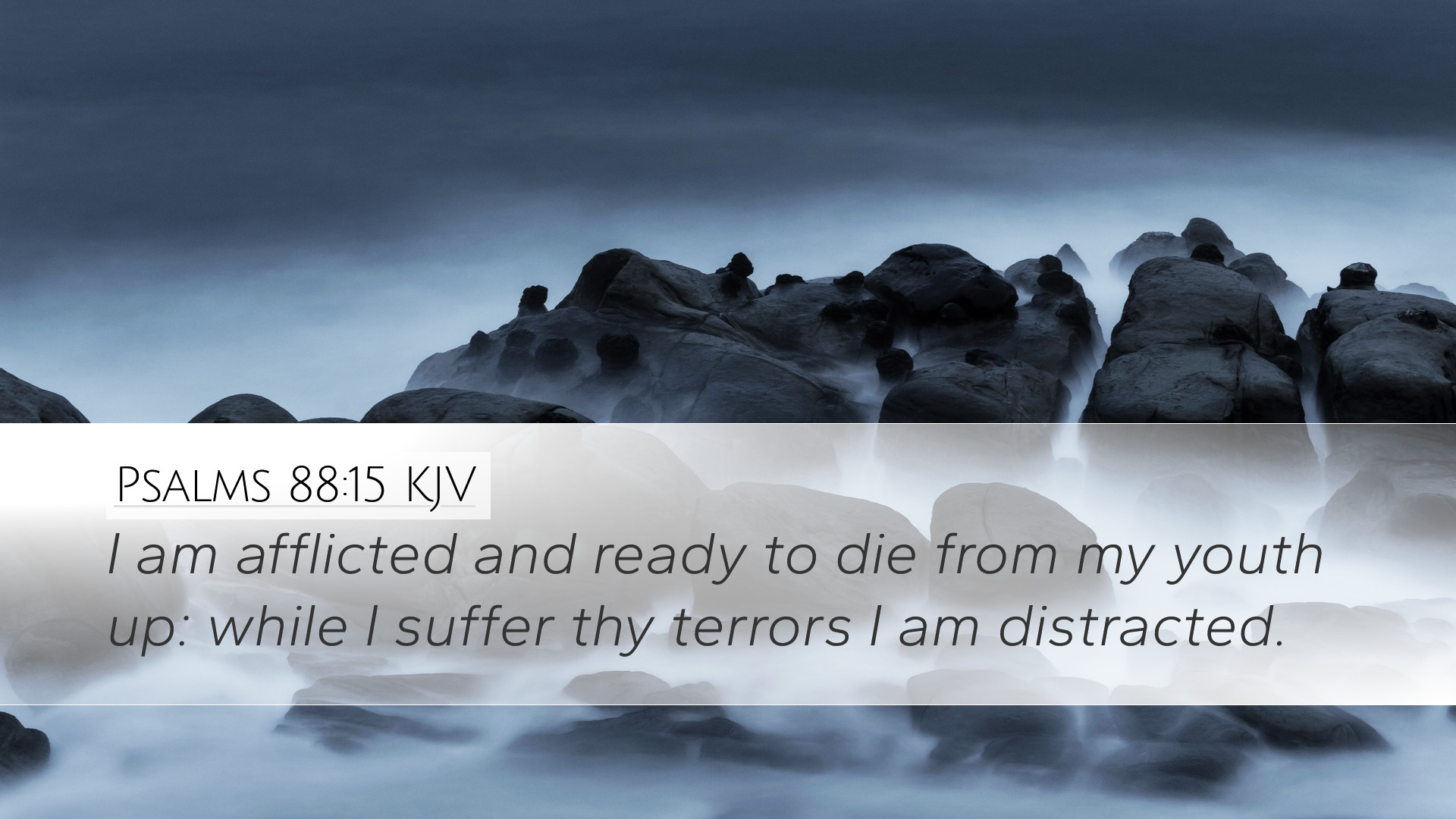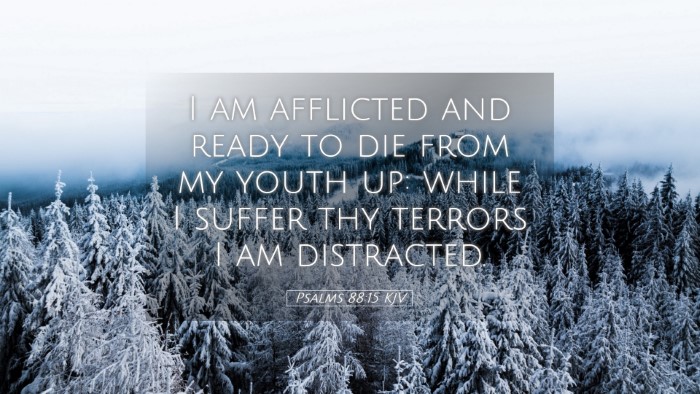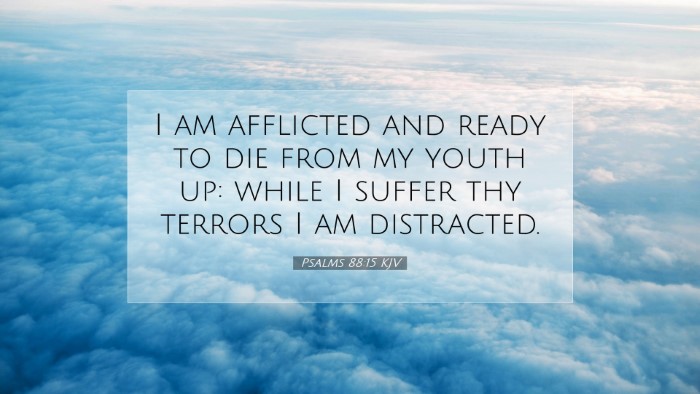Commentary on Psalms 88:15
Bible Verse: "I am afflicted and ready to die from my youth up: while I suffer thy terrors I am distracted."
Contextual Overview
The 88th Psalm stands as one of the most poignant expressions of despair in the Book of Psalms. This passage reflects the profound anguish of the psalmist, who grapples with an overwhelming sense of anguish and abandonment. Notably, the psalm is a lament that does not resolve towards hope, contrasting with many other psalms. This study draws insights from public domain commentaries to explore the depths of its meaning.
The Psalmist's Condition
The phrase "I am afflicted and ready to die from my youth up" indicates a lifelong struggle with suffering. Commentators like Matthew Henry emphasize that the term "afflicted" connotes a state of deep discomfort and distress, suggesting that the psalmist experienced not only physical ailments but also spiritual and emotional turmoil. The idea of being "ready to die" consistently throughout his life illustrates a persistence in clinging to despair.
Interpretation of "Ready to Die"
Albert Barnes notes that the phrase signifies a continual state of mourning. This is particularly poignant as it evokes the notion of a person who has faced trials that have led them to question their existence and purpose.
Adam Clarke argues that the concept of being "ready to die" reflects a deeper theological truth: the fragility of life and the relentless burden of suffering that can outlast even the longest lifetimes.
The Impact of Divine Terrors
The latter part of the verse, "while I suffer thy terrors I am distracted," reveals the psychological and emotional effects of what the psalmist interprets as God's terrors. This reflects a profound wrestling with divine justice and presence amidst suffering.
Terrors as Revelation of God
Matthew Henry suggests that the psalmist feels surrounded by God's terrors, indicating that he perceives his suffering as a direct confrontation with God Himself. This sense of divine displeasure adds a layer of spiritual distress to his physical afflictions.
Albert Barnes contributes that these "terrors" symbolize not only fear but also a sense of alienation from divine favor. The profound internal struggle begotten by these feelings results in distraction and confusion, as the psalmist grapples with the seeming abandonment by God.
Lessons for Believers
The experiences articulated in this psalm resonate deeply with the trials many believers face. The existential anguish and spiritual conversations that arise from suffering invite reflection and deeper inquiry into the nature of God amidst affliction. Herein, the following lessons emerge:
Suffering and Spiritual Growth
Believers can find that suffering often leads to a deeper understanding of God’s nature. Matthew Henry posits that through our most profound sorrow, we are drawn closer to God. True growth often emerges from periods of bleakness and uncertainty.
Moreover, Adam Clarke emphasizes that suffering is a raw aspect of the human experience; embracing our struggles allows us to cultivate resilience and dependence upon God.
The Importance of Lamentation
This psalm demonstrates the biblical precedent for lamentation. The church has much to learn about expressing grief and distress before God. Albert Barnes calls attention to the necessity of vocalizing our pain, thus fostering a relationship of honesty with God.
Matthew Henry further illustrates that acknowledging one’s suffering is a spiritually formative practice; it helps believers confront their feelings and allows the Holy Spirit space to bring healing.
Conclusion
In Psalms 88:15, we encounter an unvarnished depiction of sorrow and a profound dialogue with God regarding suffering. Public domain commentators like Matthew Henry, Albert Barnes, and Adam Clarke provide invaluable insights that aid our understanding of the psalmist's plight. Their reflections remind us that the path of faith does not shy away from the depths of despair but invites us to wrestle with our emotions in the presence of God. As we explore this devastating, yet honest psalm, we are encouraged to approach God with our grief, trusting in His presence amidst our trials.


